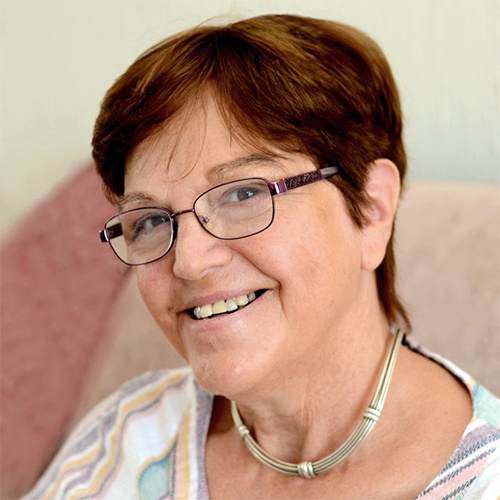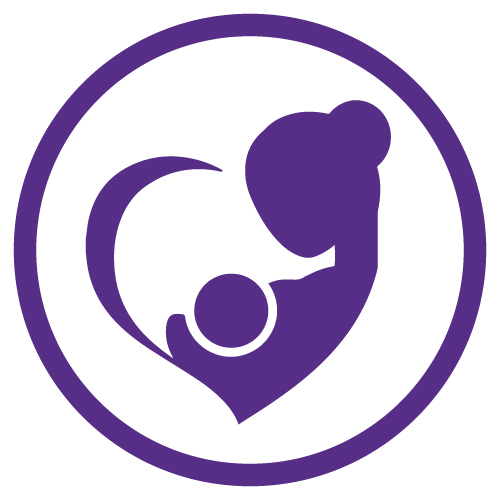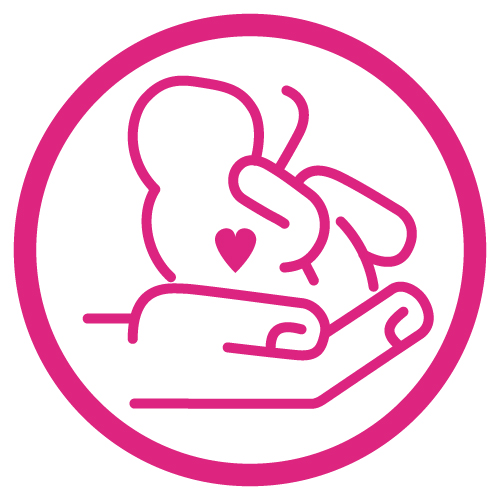 IBCLC Detailed Content Outline: Pharmacology and Toxicology Focused CERPs - Section IV
IBCLC Detailed Content Outline: Pharmacology and Toxicology Focused CERPs - Section IV
Access CERPs on Pharmacology and Toxicology for the IBCLC Detailed Content Outline recertification requirements. Enjoy convenient on-demand viewing of the latest Pharmacology and Toxicology focused IBCLC CERPs at your own pace.


Melissa Cole, MS, IBCLC, RLC is a board certified lactation consultant, neonatal oral-motor assessment professional, and clinical herbalist in private practice. Melissa has been passionate about providing comprehensive, holistic lactation support and improving the level of clinical lactation skills for health professionals. She enjoys teaching, researching and writing about wellness and lactation-related topics. Melissa holds a bachelor of science degree in maternal child health and lactation consulting and her master’s work is in therapeutic, clinical herbalism. Melissa actively conducts research and collaborates with several lactation and health care professional associations. Before pursuing her current path, Melissa’s background was in education and cultural arts, which has served her well in her work as a lactation consultant and healthcare educator. She loves living, working and playing in the beautiful Pacific Northwest with her 3 children.
Topic: Beyond Fenugreek: An Individualized Approach to Dietary and Herbal Galactagogues - [View Abstract]
Topic: Beyond the Basics of Latch: Support Strategies for Helping Babies when the Basics Aren’t Enough - [View Abstract]
Topic: Common Infant Digestive Health Concerns and Useful Support Strategies - [View Abstract]
Topic: Connection and Care: Virtual Support for Tongue-Tied Infants - [View Abstract]
Topic: Feeding is Movement: Activities for Supporting Optimal Infant Oral Function - [View Abstract]
Topic: Infant Gut Health: Common Concerns and Useful Support Strategies - [View Abstract]
Topic: Infant Oral Assessment: Exploring Anatomy and Function Beyond the Frenulum - [View Abstract]
Topic: Low Milk Production Detective Work: Assessment and Care Plan Considerations - [View Abstract]
Topic: Nature’s Nurturers: Plant Medicine for Perinatal Mental Health - [View Abstract]
Topic: New Thoughts on Infant Pre and Post-Frenotomy Care - [View Abstract]
Topic: Placenta Medicine as a Galactogogue: Tradition or Trend? - [View Abstract]
Topic: Thinking Critically About the Use of Clinical Lactation Tools - [View Abstract]
Topic: Will It Hurt? Frenotomy Aftercare Strategies to Optimize Healing Outcomes for the Newborn - [View Abstract]
Botanical medicine options are utilized by over 80% of our global population as a form of primary care. Many individuals report wanting to consider using herbs in pregnancy and beyond but are often unsure what is safe or appropriate. Clinicians play an essential role in helping individuals understand the risks and benefits of herbs for mood support in the perinatal period. By identifying meaningful resources and reliable information around botanical options, health professionals can empower families to make safe, informed choices. “Nature’s Nurturers” critically examines the use of herbal options to support perinatal mood concerns such as anxiety and depression. This talk focuses on the foundational need for individualized support when it comes to botanical discussion and selection.

Necrotizing Enterocolitis (NEC: Pathophysiology, Current Treatment, and Prevention

Bobby Bellflower is a Neonatal Nurse Practitioner with extensive experience in clinical practice, education, and administration. Her undergraduate nursing degree is from University of Memphis, and her masters and doctorate is from University of Tennessee Health Science Center (UTHSC). Currently, she is the Director of Doctor of Nursing Practice (DNP) Programs at UTHSC in Memphis, TN and does her clinical practice at Regional One Health, Level IIIc NICU. In the past, she served as director of the NNP program at UTHSC and, most recently (2010-2016), was the manager of the NNP Service at Le Bonheur Children’s Hospital in Memphis. Her research interests include prevention of NEC in neonates, evidence-based practice for APRNs and bedside nurses, and QIs.
Although survival rates and morbidity of premature and ill newborns have improved over the past decades, Necrotizing Enterocolitis (NEC) remains a significant problem for premature babies. NEC is a disease process that continues to contribute to mortality and morbidly in the Neonatal Intensive Care Unit (NICU). Recent studies indicate there are ways to diminish the incidence of NEC and research is actively looking for ways to prevent NEC. The presentation will discuss presumed causes and pathophysiology of NEC, current treatment guidelines including drug treatment, and will look at ongoing research to prevent NEC.


Karel Allegaert received his MD and PhD at the KU Leuven, Belgium where he trained as a pediatrician-neonatologist, with an additional expertise in clinical pharmacology. He is professor at the KU Leuven (department of development and regeneration) and is clinical consultant at the pediatric intensive care unit of the Sophia's Children's Hospital, Rotterdam, the Netherlands. His research is focused on developmental perinatal pharmacology and neonatal and pediatric pain, has been supported by European funding (Albino study), and national grants (FWO, IWT-SBO) and has resulted in about 300 PubMed citations, H index 33. He is member of the Royal Academy of Medicine of Belgium, president of European Society of Developmental Pharmacology and section head clinical pharmacology of the European Society of Pediatric Research.
Inadequate pain management in neonatal life impairs neurodevelopment outcome because it alters pain thresholds, pain-or stress-related behaviour, and physiological responses later in life. However, there are recently also emerging animal experimental and human epidemiological data on the impact of analgo-sedatives on neuro-apoptosis and impaired neurodevelopmental outcome. As a consequence, the management of neonatal pain is in search of a new balance, and these conflicting observations are the main drivers to tailor our pain management in neonates. Adequate pain management is based on prevention, assessment, and treatment with subsequent reassessment. Issues related to prevention and assessment tools are covered. Non-pharmacological (e.g., complementary interventions like facilitated tuking, nonnutritive sucking) and pharmacological (e.g., acetaminophen, opiods, ketamine, propofol) treatment modalities were reviewed and reflect the increased knowledge on neonatal pain management. Each topic ends with some take-home messages that in part also reflects the speakers option on the current status of this topic

View Details / Enroll

Neonatal Pharmacodynamic and Pharmacokinetic Characteristics and Implications for Pharmacotherapeutic Decisions

John Brock Harris, Assistant Professor of Pharmacy, joined Wingate University School of Pharmacy in November 2012. He earned his Bachelor of Science in Chemical Engineering concentrating in Biosciences from North Carolina State University in 2002. After completing undergraduate work, he received his Doctorate of Pharmacy from The University of North Carolina – Chapel Hill School of Pharmacy in 2007. He completed his first year post-graduate education at New Hanover Regional Medical Center in Wilmington, North Carolina followed by second year post-graduate education specializing in pediatrics at Monroe Carell, Jr. Children’s Hospital at Vanderbilt in Nashville, Tennessee. Dr. Harris became Board Certified in Pharmacotherapy while completing his pediatric post-graduate work in 2009 and Board Certified in Pediatric Pharmacotherapy in 2016. Dr. Harris is an inpatient clinical practice faculty member in pediatrics at Novant Health Hemby Children’s Hospital in Charlotte, North Carolina where he has practiced for nearly 10 years.
This presentation will focus on the pharmacodynamic and pharmacokinetic principles in neonatal populations and the implications for medication selection and monitoring. We will discuss parameters related to these principles and how pharmacotherapeutic regimens are determined using them. Absorption, distribution, metabolism, and elimination of medications and the clinical impact of neonatal patient characteristics and medication properties on pharmacotherapeutic decisions will also be presented. We will also contrast medications and why medications may be preferred for some neonatal disease states due to medication characteristics. The information provided will act as a foundation for pharmacotherapeutic recommendations based on patient and mediation specific properties for neonatal disease states.

Perinatal Depression and the Breastfeeding Dyad: Exploring Your Role and Responsibilities

Andreea Ola is a Clinical Psychologist and IBCLC with over 8 years of experience working with the mother-infant pair and conducting training in various settings (academic and medical fields, formal and informal education, national and transnational NGOs, and vulnerable populations).
Andreea Ola has been working in private practice in Romania, offering in-depth assessment and individualized solutions for challenging breastfeeding situations: low milk supply, slow weight gain, oral dysfunction, relactation, oversupply, breast refusal, reflux, as well as gentle sleep solutions for babies and parents.
She also has academic teaching experience in Developmental Psychology and Counseling and an interest in Perinatal Psychology.
Andreea Ola has a Bachelor's degree in Psychology and Educational Sciences and a Master's Degree in Human Resources Development.
Andreea Ola is a mother of two children, which inspired her lactation journey. She is also active on several social media channels, delivering free education materials to a community of over 60K users.
Topic: Perinatal Depression and the Breastfeeding Dyad: Exploring Your Role and Responsibilities - [View Abstract]
Perinatal depression is the most common obstetrical complication, with 1 in 7 women experiencing depression during pregnancy or postpartum. A vast array of negative outcomes are associated with untreated perinatal depression, including breastfeeding difficulties and premature weaning. In this talk, an evidence-based overview of the symptoms, outcomes, and breastfeeding challenges posed by perinatal depression is offered. The key role of the lactation consultant in screening, referring, and supporting the family confronted with perinatal depression is highlighted so that lactation professionals can incorporate into their clinical practice a model of care based on the individual needs of their clients.
From this presentation, lactation consultants can learn about the characteristics of perinatal depression, the instruments they can use for screening, the main challenges specifically associated with breastfeeding, and how they can refer to and act accordingly to their scope of practice when offering support to breastfeeding families (e.g., management of breastfeeding complications, providing evidence-based information regarding the use of antidepressants during breastfeeding, client-centered communication, and follow-up).

Pharmacokinetics and Clinical Implications of Drugs in Human Milk: The Substance-Exposed Infant

In her employed life Wendy was a community pharmacist and also worked in doctor surgeries supporting cost effective, evidence-based prescribing.
Wendy left paid work to concentrate on writing Breastfeeding and Medication (Routledge 2nd edition 2018), developing information and training material on drugs in breastmilk as well as setting up her own website www.breastfeeding-and-medication. She has also published Breastfeeding for Dads and Grandmas (Praeclarus Press) and Why Mothers Medication Matters (Pinter and Martin). She is also co editor of a book to be published January 2020 called A guide to breastfeeding for medical professionals (Routledge).
Wendy is known for her work on providing a service on the compatibility of drugs in breastmilk and has been a breastfeeding peer supporter for 30 years. She is passionate that breastfeeding should be valued by all and that medication should not be a barrier. She has 3 daughters and 5 grandchildren. All her family seem as passionate about breastfeeding as she is and currently all 3 of her daughters are breastfeeding.
She was awarded a Points of Light award by the Prime Minister in 2018 and nominated for an MBE in the New Year's Honours List 2018 for services to mothers and babies. She received her award at Windsor Castle in May 2019 from Her Majesty the Queen.
Topic: Medication and Breastmilk in the NICU - [View Abstract]
Topic: Pharmacokinetics and Clinical Implications of Drugs in Human Milk: The Substance-Exposed Infant - [View Abstract]
We are aware that an increasing number of babies are exposed to opiates, to methadone, to cannabis and cocaine through maternal breastmilk. In this presentation, I will discuss the pharmacokinetics of the medications and how this impacts the clinical care of the babies both immediately after delivery and later on. We need mothers to be open and honest about any drugs which they have taken in order that we may care for the baby appropriately if it is exhibiting clinical symptoms. This impacts on safeguarding issues but our aim should be to help the mother consider the impact on her baby using evidence-based information and to maintain breastfeeding appropriately. What are the long- and short-term implications of exposure for mother and baby? Is there sufficient research? As always, more questions than answers.


Jim Thigpen has been a pediatric clinical pharmacist for 30 years and is currently an associate professor of pharmacy at East Tennessee State University Bill Gatton College of Pharmacy. When he began his training at MUSC in Charleston, SC, they were investigating Survanta and he has been witness to and a participant in the evolving world of neonatology since. He has spoken at several neonatal nursing conferences over the years and enjoys helping other practitioners learn about and apply pharmacotherapy in this special population.
Topic: Clinical Pain Management in the Neonate - [View Abstract]
Topic: Our Evolving Knowledge of Drug Metabolism in the Neonate - [View Abstract]
Topic: Pharmacotherapy for Hemodynamic Instability in Neonates - [View Abstract]
There are many causes of hemodynamic instability in the neonate, with up to half of very low birth weight (VLBW) infants exhibiting evidence of low cardiac output and poor myocardial contractility within the first 12 hours of life. Failure to appropriately identify and address the causes of hypotension can lead to dramatic consequences in this vulnerable population. Pharmacotherapy is employed to provide action at specific receptors that result in improved cardiac output, relaxation and vasodilation of smooth muscle, as well as specific effects on the kidneys. Although the common agents have been used for decades, there are new developments in therapy. Refinements on patient selection, managing expected side effects, and effective dosing and have continued to evolve.

Relieving Discomfort: Non-Prescription Cold and Pain Relief While Breastfeeding

Dr. Nour El Hoda is a dedicated lactation consultant with a profound commitment to supporting breastfeeding mothers and infants. Her journey began in 2014, initially as a community volunteer, where she witnessed the challenges mothers faced on their breastfeeding journeys. Motivated to make a lasting impact, she pursued a transformative path, eventually becoming a Certified Lactation Specialist in 2015, the an International Board Certified Lactation Consultant (IBCLC).
Dr. Nour El Hoda's approach to lactation support is rooted in her belief that each breastfeeding experience is unique. Holding a PharmD degree from Saint-Joseph University in Beirut, her background in pharmacy, allows her to provide holistic guidance, blending medical expertise with compassionate care.
What sets her apart is her extensive experience across diverse settings, including hospitals, home visitation programs, and training of breastfeeding specialists. She also offered her technical support to different organizations and helped numerous families overcome challenges and reach their breastfeeding goals.
Dr. Nour El Hoda's commitment extends beyond in-person consultations, offering online resources, follow-up care, and support groups to empower families on their breastfeeding journeys. . She is passionate about spreading breastfeeding knowledge among peers and professionals as well as through her direct work with mothers.
As a continuous learner, Dr. Nour El Hoda stays updated with the latest advancements in lactation support, ensuring her clients receive top-notch care. Her speaking engagement at the esteemed conference promises a wealth of knowledge and inspiration, sharing invaluable insights into the art and science of lactation consulting.
Concerns regarding potential harm to nursing infants from maternal medication use often leads to advice suggesting discontinuation of breastfeeding. Such guidance, when inaccurate, may jeopardize the breastfeeding relationship and the infant's nutrition. While lactation consultants/counselors may not possess the authority to prescribe medications, their responsibility in this case lies in delivering competent care and advocating for lactating parents. This advocacy hinges on a comprehensive understanding of medication compatibility with lactation.
In this presentation, we will review the basics of medications’ compatibility with breastfeeding, with a specific emphasis on non-prescription drugs indicated for pain management and common cold relief. We will have an overview about common platforms to use as references, interpreting medication labels including commonly used drugs for pain relief and colds, weighing and communicating potential risks and benefit. Attendees will enhance their ability to engage in informed evidence-based dialogues with lactating families about the safe use of over-the-counter analgesics and common cold medication. By equipping ourselves with this knowledge in addition to our communication skills, we can fulfill our vital role as advocates for the lactating parent, ensuring the promotion of both maternal well-being and infant nutrition by preserving the breastfeeding relationship.


Dr. Jennifer Barnes is the Neonatal Intensive Care Clinical Pharmacy Specialist at Levine Children’s Hospital in Charlotte, NC. She has over 10 years of experience within the field. Dr. Barnes received her bachelor’s degree at Virginia Tech and her Doctor of Pharmacy at Virginia Commonwealth University’s Medical College of Virginia. She completed her pharmacy practice residency at Alamance Regional Medical Center- Cone Health. Dr. Barnes is board certified in pediatric pharmacotherapy. She is also an active member of the Pediatric Pharmacy Association (PPA) and is currently serving as the neonatology committee chair. Dr. Barnes serves as a clinical assistant professor for pharmacy advanced practice rotations for University of North Carolina, University of South Carolina, Wingate University and High Point University. Her current research areas of interest include the role of diuretics in bronchopulmonary dysplasia treatment and antibiotic stewardship for late-onset sepsis amongst other topics.
Topic: Get the LOW Down on Neonatal Hypotension - [View Abstract]
Topic: Starbucks for Babies? Caffeine Use in Neonates - [View Abstract]
Caffeine is one of the most prescribed medications within the neonatal intensive care unit (NICU). This presentation will summarize the current understanding of caffeine therapy in neonates including the various indications. Caffeine is the medication of choice for apnea of prematurity (AOP) however it has been shown to be beneficial in several other disease states and conditions. Despite the widespread use of caffeine, there is not consensus on optimal dosing regimen or timing. We will review the supporting literature for the nuances of caffeine dosing regimens and schedules. While caffeine is generally considered a safe medication, we will also discuss potential side effects for monitoring. After this presentation, the audience will have a full picture of the pros and cons of this ubiquitous medication in our NICU population.

The Classics Versus New and Upcoming Therapies: Which is Better for Neonatal Seizures?

M. Petrea Cober, PharmD, BCNSP, BCPPS, FASPEN, attended the University of Tennessee, College of Pharmacy in Memphis, Tennessee. She completed her PGY1 Pharmacy Residency at Penn State Milton S. Hershey Medical Center in Hershey, Pennsylvania, and her PGY2 Pharmacy Residency in Pediatrics at the University of Michigan Hospitals and Health System in Ann Arbor, Michigan. She is currently the Clinical Pharmacy Specialist - Neonatal Intensive Care Unit and PGY1 Residency Program Director at Akron Children's Hospital where she provides clinical services and precepts pharmacy students and PGY1 pharmacy residents. She is also a Professor in the Department of Pharmacy Practice at Northeast Ohio Medical University (NEOMED). Her didactic teaching is in the areas of pediatrics, women’s health, and nutrition. She was awarded the 2021 Stanley Serlick Award from the American Society for Parenteral and Enteral Nutrition (ASPEN) recognizing her contributions to parenteral nutrition safety and serves as the current Chair-elect of the ASPEN Parenteral Nutrition Safety Committee.
The lifetime risk of seizures is highest in the neonatal period. While the etiology of neonatal seizures is commonly the result of acute brain injury, other possibilities exist. Unfortunately, the need to treat neonatal seizures with anti-epileptic therapies or the timing and duration of therapeutic management is still vastly unknown. While phenobarbital has long been considered the mainstay of first-line medical therapy for neonatal seizures, newer agents are increasing in their popularity due to fewer side effects and concerns regarding potential neuronal apoptosis with phenobarbital. This presentation will discuss the etiology, need and timing for therapeutic management, compare and contrast various anti-epileptic therapies, and first-line, second-line, and therapies following initial failure for neonatal seizures.

















